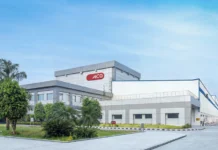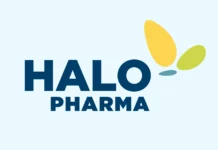The pharmaceutical industry is undergoing a profound transformation in how it approaches pricing decisions, market access negotiations, and tender participation through the strategic deployment of artificial intelligence technologies. AI in pharma market access represents a paradigm shift from traditional approaches relying primarily on historical benchmarks, expert judgment, and manual data analysis toward sophisticated, data-driven strategies leveraging predictive analytics, machine learning, and real-time market intelligence. The convergence of clinical data, market dynamics, payer behavior, and competitive intelligence through AI-powered platforms is enabling pharmaceutical companies to optimize pricing strategies, accelerate reimbursement processes, and dramatically improve tender competitiveness while maintaining profitability and ensuring patient access to critical medicines.
Market access analytics and pharma commercialization have evolved into increasingly complex domains requiring simultaneous consideration of clinical efficacy data, health technology assessment perspectives, payer preferences, regulatory pathways, competitive landscapes, and sustainability requirements. The traditional approach of relying on isolated functional teams operating with limited information sharing has proven inadequate for modern market access challenges. AI-driven platforms integrating diverse data sources and applying sophisticated analytical methodologies enable cross-functional collaboration and data-driven decision-making that significantly accelerates market access timelines while improving commercial outcomes. Industry case studies demonstrate that pharmaceutical companies leveraging AI-powered market access strategies achieve substantially superior results—20% increases in market share, 73% process efficiency improvements, 17% increases in tender win rates, and 9% margin expansion—compared to organizations utilizing traditional analytical approaches.
AI-Powered Pricing Optimization and Strategy Development
Dynamic Pricing Models and Value Demonstration
Traditional pharmaceutical pricing approaches relied heavily on historical data, competitive benchmarking, and expert judgment to establish initial price points and discount strategies. These conventional methodologies often proved inadequate in capturing the complex relationships between clinical efficacy, patient populations, competitive dynamics, market entry timing, and payer expectations. Modern AI-driven pricing systems leverage machine learning algorithms to analyze vast datasets encompassing clinical trial results, real-world evidence outcomes, competitor pricing strategies, payer coverage criteria, and market dynamics to predict optimal pricing that balances revenue objectives with patient access requirements.
Advanced machine learning models can achieve remarkable accuracy in predicting optimal price points by considering multidimensional factors simultaneously—R&D investment costs, therapeutic benefits, market competition intensity, regulatory hurdles, manufacturing complexity, and international reference pricing constraints. Pharmaceutical companies implementing AI-powered pricing analytics report significantly more accurate price predictions compared with traditional methods, enabling launch pricing strategies aligned with market realities from day one. The dynamic nature of AI pricing systems enables continuous optimization throughout product lifecycle as market conditions evolve, competitor actions emerge, payer policies shift, and new evidence becomes available. This adaptive capability transforms pharmaceutical pricing from static decisions made at market entry toward continuously refined strategies responding to real-time market conditions.
Value-Based Pricing and Outcomes Analytics
The transition from traditional fee-for-service models toward value-based healthcare systems fundamentally altered how pharmaceutical products establish pricing justification. Health technology assessment bodies worldwide now demand evidence that pharmaceutical products deliver health benefits proportionate to their costs, rejecting proposals where clinical benefit insufficient justifies premium pricing. AI-driven analytics platforms analyze patient-level data to correlate treatment outcomes with specific patient characteristics, enabling development of value-based pricing models reflecting true clinical benefits for diverse patient populations.
Pharmacoeconomic modeling enhanced by AI algorithms can predict cost-effectiveness across varied healthcare systems, patient demographics, and disease stages with unprecedented accuracy. These predictive models enable pharmaceutical companies to develop tiered pricing strategies, risk-sharing agreements, and performance-based contracts tailored to specific market segments. The ability to demonstrate value across diverse patient populations and healthcare contexts significantly accelerates market access discussions with payers and healthcare systems increasingly demanding evidence-based justification for premium pricing.
Advanced Reimbursement Process Optimization
Predictive Analytics for Coverage Decisions
Gaining favorable reimbursement remains one of the most critical challenges in pharmaceutical commercialization, requiring navigation of complex payer criteria, formulary structures, prior authorization policies, and competitive positioning. AI-driven predictive analytics now enable pharmaceutical companies to forecast coverage decision outcomes with remarkable accuracy by analyzing historical reimbursement data, payer decision criteria, clinical evidence characteristics, and competitive factors. Machine learning models trained on extensive historical reimbursement datasets can identify subtle patterns distinguishing successful from unsuccessful coverage applications, enabling tailored submission strategies significantly improving approval probability.
Natural language processing algorithms extract relevant information from medical records, insurance claims, payer policies, and historical submissions, automating tasks traditionally requiring extensive manual effort. These automation capabilities reduce administrative burden, minimize processing delays, and enable rapid reimbursement cycle management. McKinsey research indicates AI-driven process automation can reduce reimbursement approval timeframes by up to 30%, delivering significant advantages in accelerating patient access while improving cash flow for pharmaceutical manufacturers.
Streamlined Documentation and Compliance
AI platforms automate compliance verification, ensuring pharmaceutical submissions meet all regulatory and payer requirements while identifying potential discrepancies requiring attention. Automated systems generate comprehensive audit trails documenting submission activities, enabling transparent demonstration of compliance with applicable regulations. These capabilities reduce submission rejection rates by identifying and correcting deficiencies before formal submission, accelerating approval timelines and reducing rework efforts.
AI-Driven Improvements in Pharmaceutical Market Access Performance
| Performance Metric | Traditional Approach | AI-Powered System | Improvement |
| Pricing Forecast Accuracy | 65-75% | 88-95% | 20-30% improvement |
| Reimbursement Approval Time | 6-12 months | 3-5 months | 50-60% faster |
| Tender Discovery & Qualification | Manual tracking | Automated monitoring | 90% coverage improvement |
| Tender Win Rate | 25-35% | 42-52% | 17% increase |
| Process Efficiency | Manual workflows | Automated processes | 73% improvement |
| Market Share Impact | Baseline | +20% gain | Significant advantage |
| Margin Optimization | Fixed strategies | Dynamic adjustment | 9% expansion |
| Time to Market Access | 9-18 months | 5-8 months | 50% acceleration |
Tender Management and Competitive Optimization
Advanced Tender Discovery and Intelligence
Pharmaceutical tender management traditionally involved reactive participation in publicly announced opportunities, often resulting in missed opportunities, inefficient resource allocation, and competitive disadvantage. AI-powered tender management platforms now provide proactive tender discovery identifying relevant opportunities across global markets, automatically qualifying opportunities based on strategic criteria, and prioritizing focus on highest-impact tender pursuits. Competitive intelligence analytics assess win probability, analyze competitor pricing strategies, and provide net pricing insights enabling bid optimization for maximum competitiveness while protecting profitability.
A leading pharmaceutical company with global operations across 165 markets faced critical challenges where tendering accounted for 65% of global business. Inconsistent strategies, inefficient pricing, and cumbersome approval processes created competitive disadvantages. After implementing AI-powered tender optimization leveraging advanced data orchestration and real-time market intelligence, the company achieved remarkable results within one year: 73% process efficiency improvement, 17% increase in tender win rates, and 9% margin expansion. These quantifiable outcomes demonstrate the transformative potential of AI-driven tender management systems in competitive pharmaceutical markets.
Automated Bid Optimization and Value Demonstration
Advanced optimization algorithms analyze pricing parameters, value proposition elements, and competitive positioning to recommend bid strategies balancing competitiveness with profitability objectives. Rather than relying upon manual bid preparation and isolated pricing decisions, AI systems simulate various bid scenarios, predict likelihood of success under different assumptions, and recommend optimal approaches. Integration with customer relationship management systems enables seamless information sharing, eliminating information silos that traditionally hampered bid quality.
Value-based tendering methodologies emphasize demonstrating total value to healthcare purchasers beyond simple price competitiveness. AI platforms construct modular value dossiers highlighting clinical innovation, patient impact, healthcare system benefits, and total cost of ownership considerations. These comprehensive value narratives, constructed through AI analysis of healthcare system priorities and patient population characteristics, significantly improve tender competitiveness by addressing decision-maker priorities rather than solely focusing on price.
Market Access Analytics Platforms
Integrated Data and Intelligence Systems
Modern market access analytics represents the systematic collection, integration, and analysis of diverse healthcare data to inform pharmaceutical pricing, reimbursement, and commercialization strategies. Platforms aggregating clinical trial results, real-world evidence, payer coverage policies, prescriber behavior, patient access barriers, and competitive intelligence into unified analytical systems provide comprehensive market understanding previously impossible to achieve. These integrated systems enable identification of market access barriers, patient segments facing access challenges, and optimization opportunities across complex healthcare landscapes.
Real-time market access dashboards integrate payer news, formulary changes, reimbursement policy modifications, and competitive activities to provide immediate awareness of market developments and implications. Companies implementing real-time market access dashboards report 25% improvements in forecast accuracy and significantly faster insight generation supporting rapid response to emerging market challenges or opportunities. The transparency provided by comprehensive market access analytics enables more informed strategic decisions and more effective resource allocation across diverse market segments.
Scenario Simulation and Strategic Planning
AI-powered market access platforms enable sophisticated scenario analysis and strategic simulation without requiring extensive physical market testing. Pharmaceutical companies can simulate pricing modifications, reimbursement strategy changes, competitive responses, and policy shifts to predict market impacts before implementation. These simulation capabilities compress strategic planning timelines while reducing risks associated with experimental market approaches.
Future Directions: AI-Powered Commercialization Excellence
The pharmaceutical industry faces unprecedented pricing pressure from payers, biosimilar competition, regulatory policy changes including drug price negotiation programs and international reference pricing benchmarks, and increasing demand for evidence of value. Forward-thinking pharmaceutical organizations recognize that AI-driven market access and commercialization capabilities will become increasingly essential for competitive success. Organizations investing in comprehensive AI capabilities for pricing, reimbursement, and tender optimization are establishing competitive advantages through superior commercial outcomes, accelerated market access, improved forecast accuracy, and enhanced resource utilization.
The convergence of AI analytics, real-world evidence platforms, advanced modeling capabilities, and integrated data systems is creating next-generation market access capabilities that fundamentally redefine pharmaceutical commercialization. Pharmaceutical companies successfully integrating these capabilities will establish leadership positions characterized by superior pricing strategies, accelerated market access, improved tender competitiveness, and ultimately, enhanced patient access to innovative therapies globally. AI in pharma market access represents not merely technological upgrade but strategic imperative for contemporary pharmaceutical success.




















